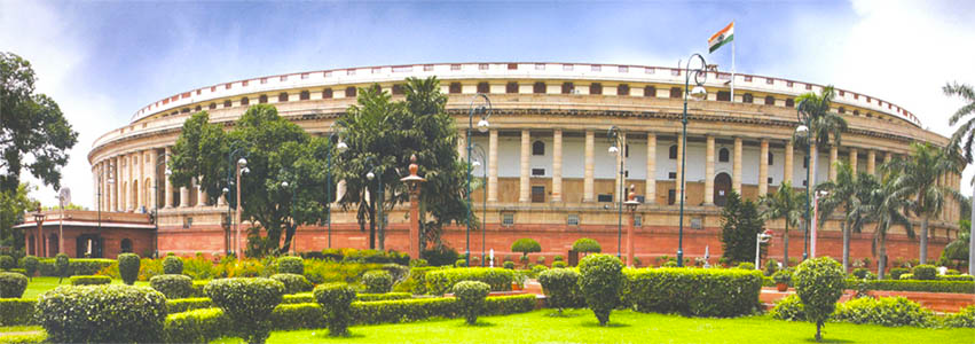
Written By Bhavya Bhardwaj
India’s parliamentary democracy stands at a tough crossroads today. The ever-growing strength of the ruling party both in electoral numbers and in the larger narrative shaping the country, without alternative voices finding much traction amongst the masses, signals a dangerous trend in the democratic history of India. The last decade has witnessed a systematic erosion of opposition from the Indian political system where not only did the opposition parties fail to sway the electorate during elections but the lack of a national vision or strategy is clearly reflected in their ad hoc and reactionary measures.
This situation has been made worse by the intentional trampling of ‘different voices’ by the ruling party as many alternative ‘opinions met with obstruction’ and ‘criticism invited conflict’. The downslide of India on parameters such as press freedom, human rights, frequent use of oppressive laws like UAPA and sedition to stifle dissent has almost become an everyday news.
The grand old party of India, Congress, which transitioned from being the largest party to being the largest opposition party in Parliament in the past years, has completely failed to reinvent itself and rise to the changing political realities. It currently holds only 53 seats in the Parliament as opposed to the 300+ odd seats held by the ruling-NDA(National Democratic Alliance). The party has been consistently losing its ground after facing recurring defeats in multiple State elections yet it has shown little willingness to revamp the party and address the organizational challenges that have been out in the open for quite some time. Other than that, the regional parties are seen as exerting too ‘concerted influence’ in the Indian political space for them to pose a ‘national’ threat to the ruling dispensation. In short, the major reasons for the disarrayed nature of Indian opposition can be summarized into: dynastic leadership, lack of a clear purpose, narrative and vision, myopic and self-interest driven measures and adoption of an obstructive rather than constructive agenda.
Democracy as an ideal rests on the principle of appropriate checks and balances where the ‘party in power’ is held accountable for their policies and is constantly kept on their toes for their actions. The central role of It is only through appropriate deliberation, discussion and debate in a parliament and regular scrutiny of government actions that the opposition can ensure the constitutional mandate of keeping the unlimited powers of government in check and hold the mirror to them in case of failures to deliver on the agenda of public welfare. Thus, the importance of a strong opposition in a democratic setup cannot be overstated. A weak opposition in combination with an authoritarian government can effectively spell doom for the future of the country as the policy-vision is decided without the active consensus of different sections of society.
However, Indian political history is a witness that whenever the party-system has failed to provide a platform for the projection of public grievances, it is the ‘people’ of the country who have led active movements of resistance against the whims and discriminatory acts of government. Democracy lives and breathes through the conscience of citizens and their courage to resist the dictatorial tendencies of a government. Recent examples in the near past include the CAA-NRC and Farmers’ protest where without any substantial leadership it was the common citizens that took to streets to fight for their rights and asserted their ‘collective will’ to uphold the cherished democratic ideals in the world’s largest democracy. So while at the national level, Indian democracy currently awaits a strong opposition it is the people’s voice that is keeping the immortal ideals of a ‘responsible parliamentary democracy’ alive in India.
The views expressed in this article are those of the author and do not represent the stand of Youth in Politics.

Leave a Reply